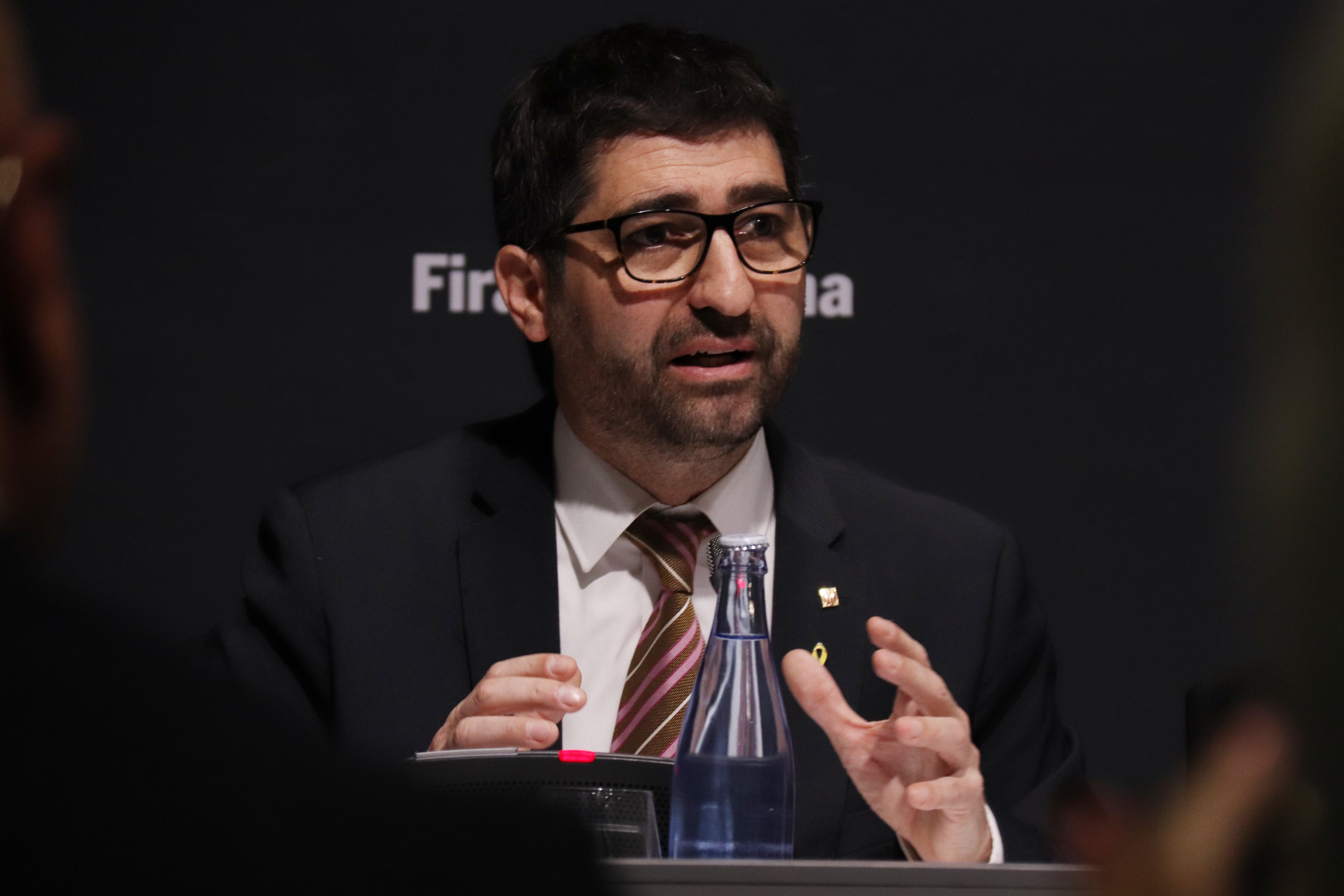"It seems essential to us to have an artificial intelligence (AI) strategy if we want to make Catalonia an international benchmark for research and innovation." That's how Catalan digital policies minister Jordi Puigneró has today presented 'Catalonia.AI', a "strategic country plan which is a pioneer in the Spanish state and aligned with the interests of the European Commission in technology and digital spheres." The strategy, approved this morning by the Catalan government, will receive 10 million euros of funding over a three-year period.
Puigneró explained that the project is one of the "priority strategies", given that, according to studies he quoted, "this technology is expected to increase world GDP by 14% over the next 10 years, and will also be a source of employment." The minister, together with the government's director general of innovation, Daniel Marco, explained that Catalonia.AI is a "transversal, multi-sector and person-centered country strategy that aims to harness the full potential of AI for the benefit of society and make Catalonia a world technology hub in artificial intelligence technology."
In addition, it is a project originating at Catalan level, as relations with the state in digital policies have been broken. The minister explains that "our relationship with the Spanish state in the field of digital strategy was always good until the decretazo" - referring to the Sánchez government's decree last October, giving itself tight control over digital communications and developments. "The decree said we could not develop digital strategies without their consent, and what they've done is a total brake. What social agents and governments all agree on is that Catalonia has to be a driver for digitalization, and so we were very surprised by Pedro Sánchez's decree, because you can't just stand up against the progress of technology. It isn't us who have been bringing politics into this issue, it was Sánchez with the decree and now we are in court fighting it because it doesn't make sense. This decree will eventually be repealed and if not, the Constitutional Court will finish the job, we are convinced. As a result, the Catalan government says that the IdentiCAT project is "being reformulated" so that it can be rolled out no matter what the Spanish state says.
10 million euros in three years
The minister said that to launch the project, the Catalan administrations's digital policy department plans to provide it with 10 million euros over three years, "in addition to the funds already allocated in the field of artificial intelligence". Of this sum of 10 million euros, 34% will be focused on innovation projects, 10% will be used to develop talent, entrepreneurship and recruitment, and the rest will be distributed across events, innovation laboratories and the promotion of ethics in the technological field.
On this last point, Puigneró explains that a Catalan ethical charter had been created. "When we started writing the ethics charter, we were accused of only doing so because of what happened with regard to the closures of websites related to the Catalan independence referendum in 2017," he says. "Obviously we did so partly because of that, but also because we have to move toward a more ethical technological model in which technology and data are governed by the citizens, not by governments or big business."
Innovation head Marco explained that the project consists of six strategic axes which are to be strengthened in the field of Artificial Intelligence: ecosystem; research and innovation; talent; infrastructure and data; technology adoption; and ethics and society. In addition, the minister explained that "in Catalonia we already have an embryonic ecosystem for this technology because there are already 180 companies that provide services and employ 8,500 workers".
CIDAI, the first action
"The first action we are taking within the framework of this strategy is the launch of CIDAI," said Puigneró. This is the Centre for Innovation in Data tech and Artificial Intelligence (CIDAI), a public-private partnership established as an on-line innovation centre with several entities collaborating, including Microsoft, Everis and SDG. This centre will receive three million euros between 2020-2023 of which the Catalan government will contribute 40%.
Regarding the sectors which are priority for the impact of the IA strategy, the government lists the following: agro-food, medical and health, education (more personalized, flexible and with the possible use of IA to improve teacher capabilities), administration, tourism and language, mobility and traffic management, sustainability and energy, and industry.

